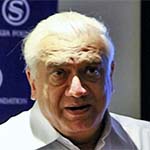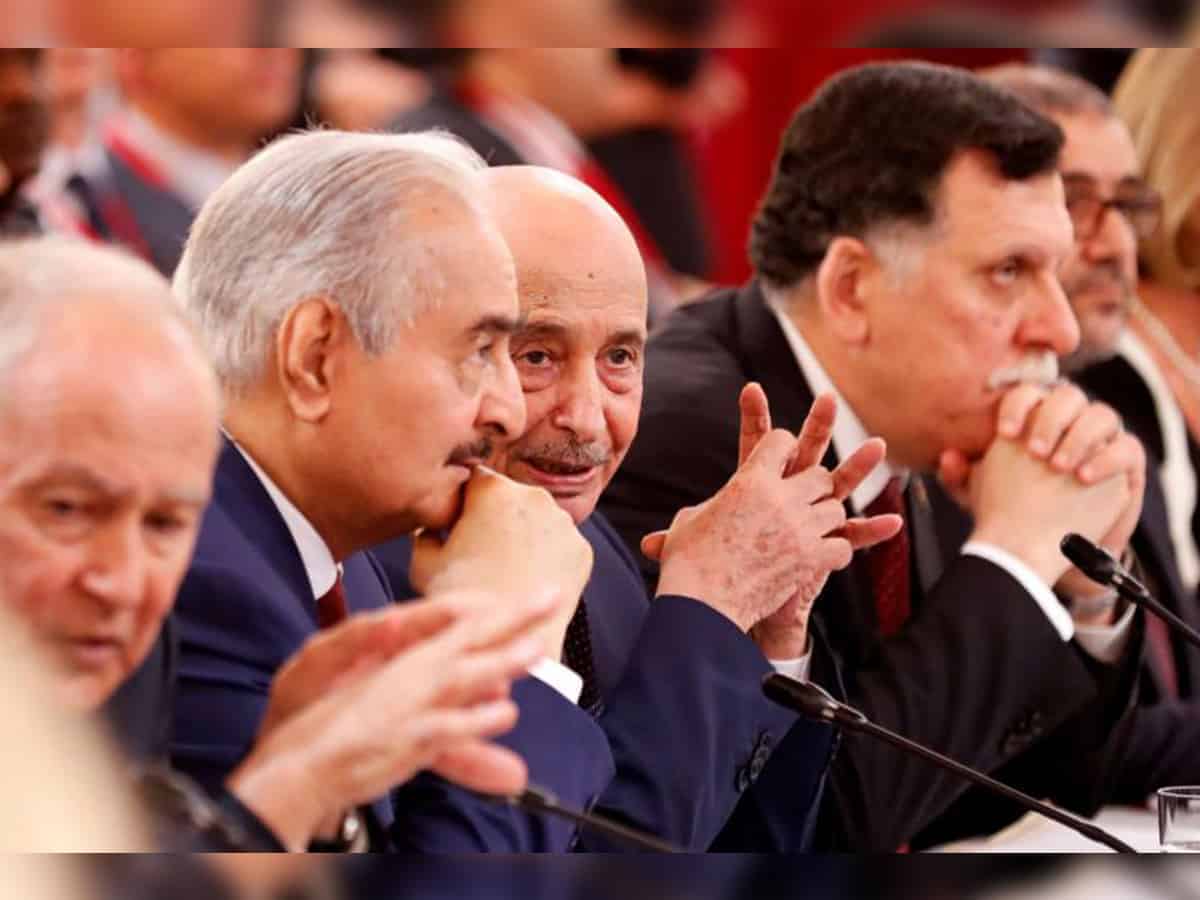
Libya was on Friday dragged from the certainty of war and offered an unexpected prospect of peace. Prime Minister Fayez Al-Sarraj of the Tripoli-based Government of National Accord (GNA) ordered an immediate cease-fire. This call was immediately echoed by the Tobruk-based Libyan Parliament Speaker Aguila Saleh.
In his statement, Al-Sarraj called for the withdrawal of foreign troops from Libya, the restoration of the country’s oil production, and presidential and parliamentary elections in March. He also backed the equitable sharing of oil revenues between the Tripoli and Tobruk governments.
This cease-fire was preceded by talks organized by the UN special envoy for Libya in Geneva, as well as calls between the Russian and Turkish foreign ministers, whose governments are backing rival factions in Libya.
The announcement has dramatically ended the momentum toward a nationwide conflict. Over the last month, the Tripoli government and its Turkish supporters had made it clear that their objective was to take Sirte, the oil-exporting port on the Mediterranean and gateway to the oil fields, and Al-Jufra airbase in central Libya.
Egypt, backing Tripoli’s opponent, Field Marshall Khalifa Haftar, had said that any hostile movement toward the Sirte-Jufra line would trigger an immediate Egyptian military response. Through July and most of August, battle lines were being sharpened.
Haftar is backed by about 2,500 mercenaries from the private Russian military contractor Wagner, while Turkey has brought in nearly 4,000 fighters from the militias it supports in Syria. In the event of conflict, Turkey is likely to seek air superiority through its air force, air defense systems, and highly advanced drones.
Turkey is confronted by Egypt and its UAE ally, with the latter maintaining formidable air capacity at the Egypt-Libya border and at the Al-Khadim airbase in eastern Libya. Egypt has also boosted local support by reaching out to Libyan tribes directly and assuring them of air and ground support in the event of war.
As the battle for Sirte loomed, there was much diplomatic activity. US President Donald Trump spoke to the leaders of Turkey, Egypt and France, calling on them to “de-escalate” the situation by controlling the influx of foreign fighters and weaponry. He asked French President Emmanuel Macron to detach Haftar from his allies and promote cooperation between him and the GNA.
US National Security Adviser Robert O’Brien said the US was engaged in a “360-degree diplomatic engagement” with all stakeholders in a bid to obtain a cease-fire. These efforts appear to have gone nowhere, since Haftar remains firmly with his partners, while Turkish President Recep Tayyip Erdogan complained that only Turkish supplies to its allies were being blocked by the Europeans in the Mediterranean.
The principal players in Libya have very substantial stakes. Through its ties with the GNA, Turkey is asserting its outreach across the Mediterranean for its gas resources, alarming Greece, Cyprus, Israel and Egypt. With its commitment to political Islam and Erdogan’s desire to revive Ottoman glory, Turkey also has ideological and strategic interests in the region.
Russia is keen to expand its presence in the Mediterranean by establishing bases in Libya as an extension of its naval base at Tartus and airbase at Hmeimim, both on the Syrian coast, and also to participate in the development of the country’s energy and economic recovery projects when peace is restored.
Egypt is Turkey’s rival in that it strongly opposes political Islam being consolidated in the region, while Cairo also views the Turkish presence in Libya and the Mediterranean in general as a long-term security concern. Hence, Egypt has entered into an agreement with Greece to set up an exclusive economic zone for hydrocarbon drilling to rival Turkey’s claims. It is also reported to be expanding its political and even military ties with the Kurds in northeastern Syria to confront Turkey.
Both the US and the EU are opposed to Russia’s entry into their strategic space in the Mediterranean. They also have concerns about the intentions of Turkey, their NATO partner, which is playing a disruptive role in the Mediterranean, while consorting politically and militarily with their rival, Russia, in Syria — and possibly even Libya too.
While Erdogan has retained close ties with Trump, his serious strategic partnership has been with Putin.
While Erdogan has retained close ties with Trump, his serious strategic partnership has been with Vladimir Putin. Though rivals in Libya, in January they worked together on a cease-fire plan that was only scuttled by Haftar’s last-minute walk-out.
It is likely that the latest cease-fire in Libya is the result of close consultations between Turkey and Russia, as they work together to reconcile their interests and share in the spoils in Libya and the Mediterranean. However, given the competing concerns and interests of other players in the Libyan arena — and Haftar’s rejection of the cease-fire — peace may still be a long way off.
Talmiz Ahmad is an author and former Indian ambassador to Saudi Arabia, Oman and the UAE. He holds the Ram Sathe Chair for International Studies at the Symbiosis International University in Pune.

